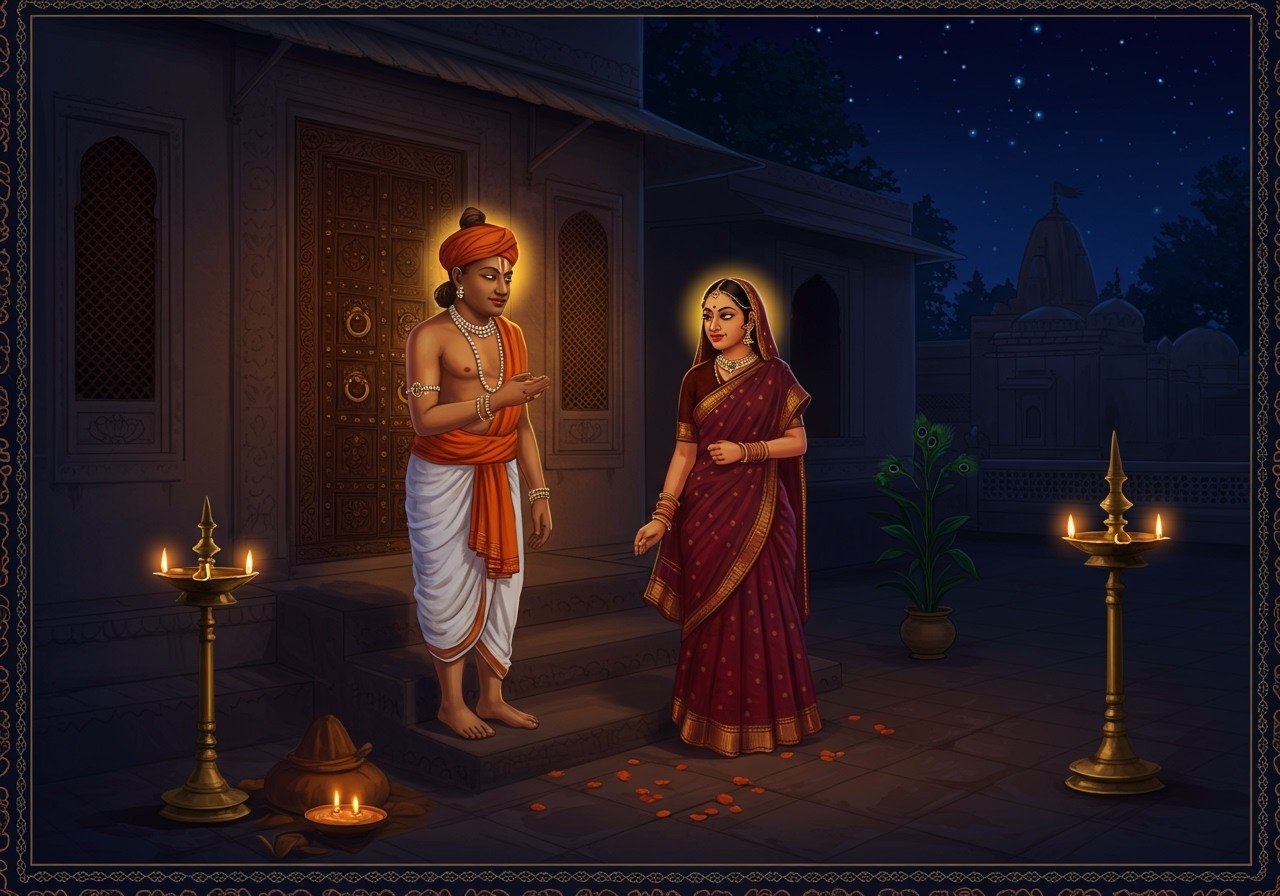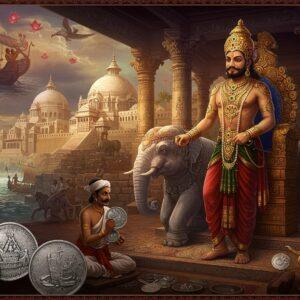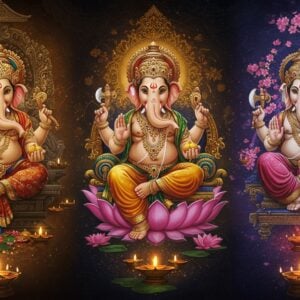
Sant Eknath Maharaj (c. 1533 – 1599 AD), a revered Marathi saint, philosopher, and poet, significantly contributed to the Bhakti tradition of Hinduism. His life, filled with devotion, literary achievements, and social reform, continues to inspire generations.
Early Life and Education
Born in Paithan, Maharashtra, to a Deshastha Rigvedi Brahmin family, Eknath lost his parents early in life. Raised by his grandfather, Chakrapani, he inherited a rich spiritual legacy as the great-grandson of Saint Bhanudas, a prominent figure in the Warkari sect. At the young age of 12, Eknath became a disciple of Janardan Swami, a devotee of Dattatreya. Under his guru’s guidance, he delved into Sanskrit grammar, philosophy, Vedanta, and scriptures like the Dnyaneshwari, ultimately receiving the divine Darshan of Dattatreya.
Literary Contributions
Eknath Maharaj’s literary works played a pivotal role in making religious teachings accessible to the common people. He authored several notable works in Marathi, including the Eknathi Bhagavata, a rendition of the Bhagavata Purana, and the Bhavarth Ramayan, a version of the epic Ramayana. His Rukmini Swayamwar Hastamalak, based on a Sanskrit hymn, further enriched Marathi literature. Additionally, he composed numerous bhajans and Bharuds, a novel form of Marathi religious song, spreading spiritual messages through music.
Explore sacred texts and religious books on poojn.in.
Social Reform and Inclusivity
A strong advocate for social equality, Eknath Maharaj challenged the prevalent caste system and untouchability. He promoted brotherhood and unity, emphasizing everyone’s right to worship, regardless of social standing. His inclusive approach extended to women and the downtrodden, empowering them to participate in spiritual practices. He believed that devotion transcended social barriers, fostering a sense of community and shared spirituality.
Find sacred threads and other puja essentials on poojn.in.
Stories of Compassion and Miracles
Numerous stories illustrate Eknath Maharaj’s compassion and spiritual power. One famous anecdote recounts how he endured being splashed with dirty water 18 times while returning from his daily bath in the Godavari River. Instead of anger, he responded with patience and forgiveness. Another story tells of him breaking tradition by feeding the poor and low-caste during an ancestral ceremony. He also demonstrated his spiritual prowess through miracles, such as turning stones into gold and multiplying food, showcasing his divine grace.
Devotion to Vitthal and Legacy
A staunch devotee of Vitthal, Eknath Maharaj played a crucial role in the Warkari movement. Often considered a spiritual successor to Dnyaneshwar and Namdev, he emphasized purity of thought, speech, and action. His teachings promoted devotion, knowledge, and ethical living. His Samadhi shrine in Paithan, near the Godavari River, where he voluntarily ended his earthly journey, remains a place of pilgrimage.
Find deity idols and pictures for your home temple at poojn.in
Further exploring the rich tapestry of Hindu mythology and devotional practices, you might find these related articles insightful:
- Lord Shiva and Krishna: Stories and Bhajans – Exploring Hindu Mythology
- Krishna’s Names: Meaning and Significance in Hinduism
- Krishna and Radha: The Story of Divine Love


